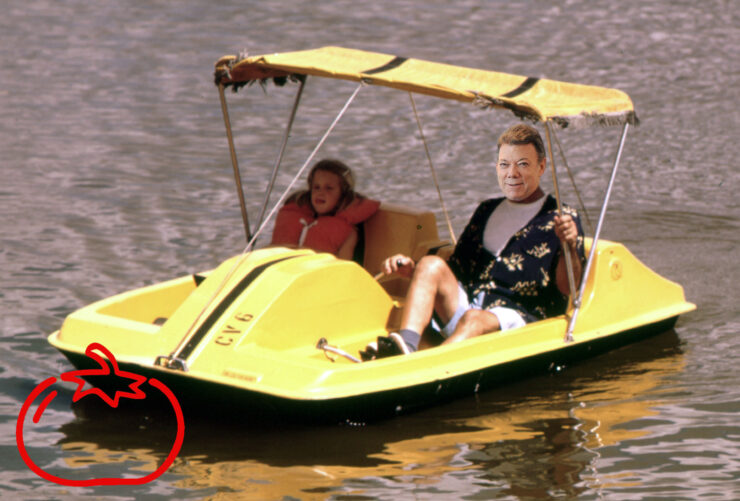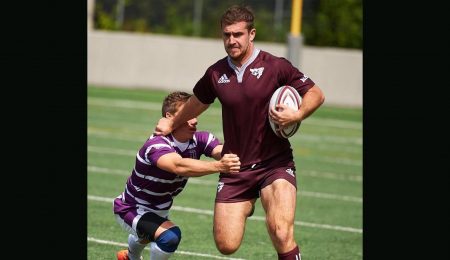Rafts, paddle boats, homemade canoes employed in rain storm chaos
The major rainfall in Ottawa this past week has forced many residents to find alternatives to travelling by car or bus. Prime Minister Justin Trudeau drew stares and media attention when he took an ATV from his residence in Harrington Lake to meet his motorcade on drier land. Less publicized, though, were the many other cases of national capital power players finding other unique ways to beat the flooding.
Finance minister Bill Morneau and ethics commissioner Mary Dawson were spotted carpooling together in a Range Rover with platinum rims and a small outboard motor on the back. The vehicle was slowly filling with water, but the pair seemed to be paying little attention.
Paddling through a flooded street in a canoe, former prime minister Stephen Harper opined about the government’s approach to NAFTA negotiations. His canoe seemed to be pieced together from leftover imported materials.
Nobel Peace Prize-winning Colombian president Juan Manuel Santos’ first official visit to Ottawa was also dampened by the rain. Parts of his visit had to be held in a paddle boat piloted by Governor General Julie Payette, who hosted the state visit. But the Colombian leader made the best of the situation, calling the rain a blessing on the two countries’ relationship.
Of course, students at the University of Ottawa were just as affected as these major figures. Several classes were canceled, but some continued even in the face of flooding. Second-year French studies student Joseph Ruthenburg, while taking notes with one hand and bailing water out the window with the other, said “our TA wanted to cancel this DGD, but we can’t afford to get any further behind. We’re all pitching in to keep the water below the chalkboard.”
In another classroom, students had brought inflatable pool chairs and were sitting high and dry, floating on the floodwater.
Some students, however, couldn’t even make it to class. Thompson residence was completely inaccessible for over 40 hours, and emergency crews advised residents not to try to leave until the rain subsided. Students at other residences had more luck, with floodwaters shallow enough to wade across in most cases.
“Getting to class was a challenge. I didn’t want my books to get wet, so I had to find a way of keeping them above the water,” said John Walker, a third-year economics student. “I tried holding my bag over my head, but the spray of the waves almost soaked it. After that I tried stilts, then wrapping the whole thing in a garbage bag.”
There was good news as well, though. Students from the Faculty of Engineering and Telfer School of Management worked together, quickly building barges and transporting people for reasonable but slightly inflated prices.
In light of recent extreme weather, it is strongly recommended that students keep the following on hand: waterproof bags, rainwear, a canoe or kayak, an emergency generator, at least one week’s worth of non-perishable food, and a collection of inflatable toys that can be lashed together.





